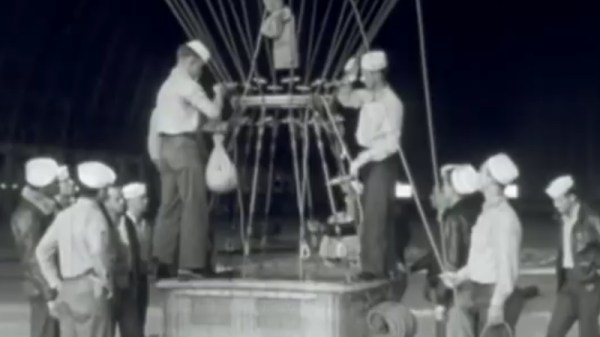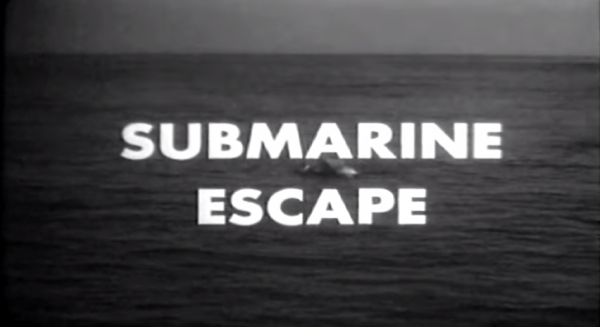To the average person, the application of balloon technology pretty much begins and ends with birthday parties. The Hackaday reader might be able to expand on that a bit, as we’ve covered several projects that have lofted various bits of equipment into the stratosphere courtesy of a high-altitude balloons. But even that is a relatively minor distinction. They might be bigger than their multicolored brethren, but it’s still easy for a modern observer to write them off as trivial.
But during the 1940’s, they were important pieces of wartime technology. While powered aircraft such as fighters and bombers were obviously more vital to the larger war effort, balloons still had numerous defensive and reconnaissance applications. They were useful enough that the United States Navy produced a training film entitled History of Balloons which takes viewers through the early days of manned ballooning. Examples of how the core technology developed and matured over time is intermixed with footage of balloons being used in both the First and Second World Wars, and parallels are drawn to show how those early pioneers influenced contemporary designs.
 Even when the film was produced in 1944, balloons were an old technology. The timeline in the video starts all the way back in 1783 with the first piloted hot air balloon created by the Montgolfier brothers in Paris, and then quickly covers iterative advancements to ballooning made into the 1800’s. As was common in training films from this era, the various “reenactments” are cartoons complete with comic narration in the style of W.C. Fields which were designed to be entertaining and memorable to the target audience of young men.
Even when the film was produced in 1944, balloons were an old technology. The timeline in the video starts all the way back in 1783 with the first piloted hot air balloon created by the Montgolfier brothers in Paris, and then quickly covers iterative advancements to ballooning made into the 1800’s. As was common in training films from this era, the various “reenactments” are cartoons complete with comic narration in the style of W.C. Fields which were designed to be entertaining and memorable to the target audience of young men.
While the style might seem a little strange to modern audiences, there’s plenty of fascinating information packed within the film’s half-hour run time. The rapid advancements to ballooning between 1800 and the First World War are detailed, including the various instruments developed for determining important information such as altitude and rate of climb. The film also explains how some of the core aspects of manned ballooning, like the gradual release of ballast or the fact that a deflated balloon doubles as a rudimentary parachute in an emergency, were discovered quite by accident.
When the film works its way to the contemporary era, we are shown the process of filling Naval balloons with hydrogen and preparing them for flight. The film also talks at length about the so-called “barrage balloons” which were used in both World Wars. Including a rather dastardly advancement which added mines to the balloon’s tethers to destroy aircraft unlucky enough to get in their way.
This period in human history saw incredible technological advancements, and films such as these which were created during and immediately after the Second World War provide an invaluable look at cutting edge technology from a bygone era. One wonders what the alternative might be for future generations looking back on the technology of today.












